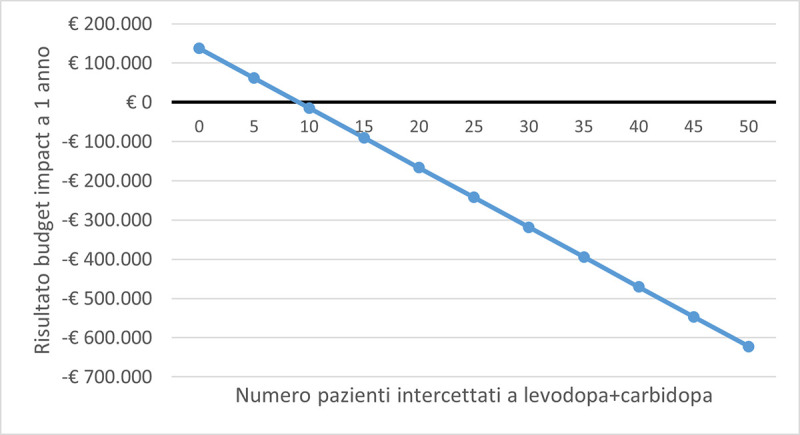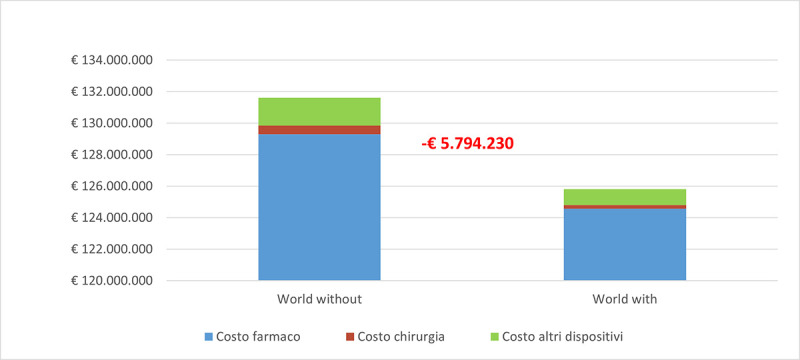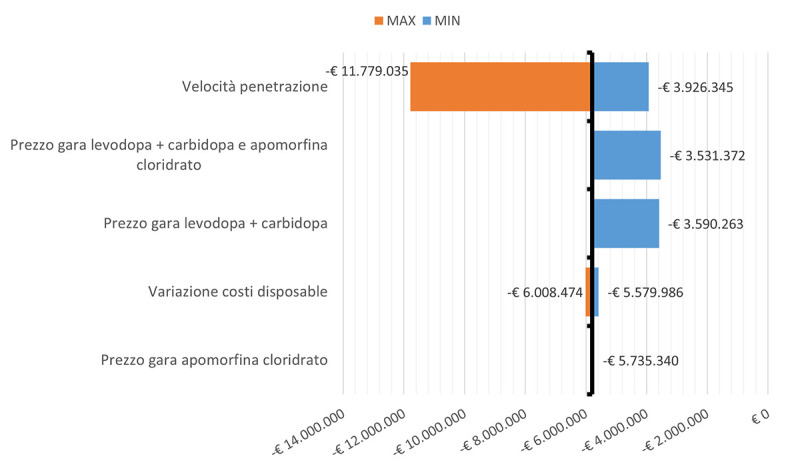对帕金森患者新治疗系统的预算影响分析。
IF 0.5
Q4 HEALTH CARE SCIENCES & SERVICES
引用次数: 1
摘要
本文章由计算机程序翻译,如有差异,请以英文原文为准。



Analisi di impatto di budget di un nuovo sistema di cura in pazienti affetti da malattia di Parkinson.
Objective: To estimate the economic impact of the introduction of a new care system based on apomorphine and Patient Support Program for motor fluctuations (“on-off” phenomena) in patients with Parkinson’s disease which are not sufficiently controlled by oral anti-Parkinson medication in Italy.
Method: A Budget Impact model was developed to evaluate the new care system in patients with Parkinson’s disease over a 3-years’ time horizon. The comparator treatments included in the analysis were treatments based on apomorphine and levodopa + carbidopa. The analysis was conducted from a National Health Service (NHS) perspective. Costs included in the analysis were acquisition costs and device costs. A deterministic sensitivity analysis was carried out to evaluate the uncertainty of the parameters used. A break-even analysis was conducted to identify the minimum number of subjects that would need to be treated with the new care system to obtain a positive Budget Impact (World With – World Without = 0).
Results: The analysis shows that the introduction of the new care system based on apomorphine could generate a cost saving incurred by the NHS of over € 5.7 million in 3 years. Break-even analysis shows that if it were possible to intercept with the new treatment at least 9 patients treated with apomorphine, there would not be an increase in costs for the NHS.
Conclusion: The new care system would respond to the unmet needs of patients with Parkinson’s disease by generating a reduction in the expenditure incurred by NHS.
求助全文
通过发布文献求助,成功后即可免费获取论文全文。
去求助
来源期刊

Global & Regional Health Technology Assessment
HEALTH CARE SCIENCES & SERVICES-
CiteScore
0.80
自引率
20.00%
发文量
27
审稿时长
8 weeks
期刊介绍:
Global & Regional Health Technology Assessment (GRHTA) is a peer-reviewed, open access journal which aims to promote health technology assessment and economic evaluation, enabling choices among alternative therapeutical paths or procedures with different clinical and economic outcomes. GRHTA is a unique journal having three different editorial boards who focus on their respective geographical expertise.
 求助内容:
求助内容: 应助结果提醒方式:
应助结果提醒方式:


